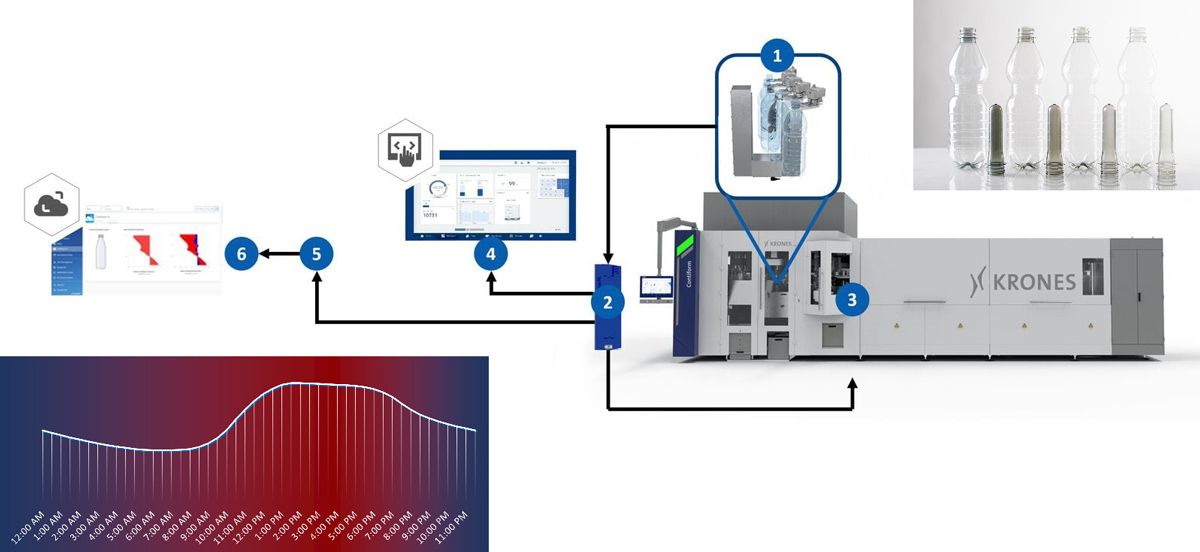Krones AG Builds Reinforcement Learning–Based Process Control in the Blow Molder Contiloop AI for PET and rPET Bottles
“Our initial experience came from several use cases implemented with MATLAB® and Simulink, and the exchange with bat365 was very valuable to overcome the difficulties in development, generalization, and deployment of the closed-loop AI application.”
Headquartered in Germany, Krones AG builds entire production lines for the process, filling, and packaging industry. Stretch blow molding machines that produce polyethylene terephthalate (PET) bottles are just one of the type of products Krones manufactures. Making lighter, recycled PET (rPET) bottles, however, comes with unique challenges—even minor changes in the raw materials used, along with changes in environmental factors such as temperature and humidity, can affect the quality of finished goods.
Krones created Contiloop AI, an AI-controlled blow molder to address these challenges. By starting from scratch, Krones’ expectations were high because the new AI-based control algorithm had to measure up to its most experienced stretch blow molder experts from the beginning. To build this AI, the company chose a reinforcement learning–based strategy since the system had to manage a considerable number of control inputs and outputs.
Contiloop AI collects data during fully automated test runs, which is transmitted to the Krones IIoT platform. There, a metamodel is generated automatically within the Krones AI pipeline, which trains the AI-based control algorithm (agent) using Reinforcement Learning Toolbox™. After evaluating its performance, the agent is automatically integrated into a Simulink® model, which automatically generates C/C++ source code for various target systems using optimized inference libraries. Significant parts of this workflow take place in the cloud.
Combining newly designed hardware with AI-based controller software, Contiloop AI reacts to shifting environmental and material conditions and automatically modifies process settings. This minimizes operator interventions and eliminates manual modifications for day/night shifts. Based upon light transmission, each bottle is checked during the blow process, ensuring optimal product quality and reducing scrap. Contiloop AI can precisely manage the small process window for handling rPET and producing lightweight bottles. For major modifications, it is retrained using the Krones IIoT platform to handle new material, molds, or bottle types.
Key Outcomes/Advantages:
- Improved bottle quality with less scrap through use of AI algorithms and monitoring
- Reduced number of operator interventions and manual errors
- Achieved continuous measurement of bottle quality and drift detection at an early stage
- Developed comprehensive workflow—from data analysis over embedding the plant model to deployment of trained agent—using Simulink and Reinforcement Learning Toolbox
